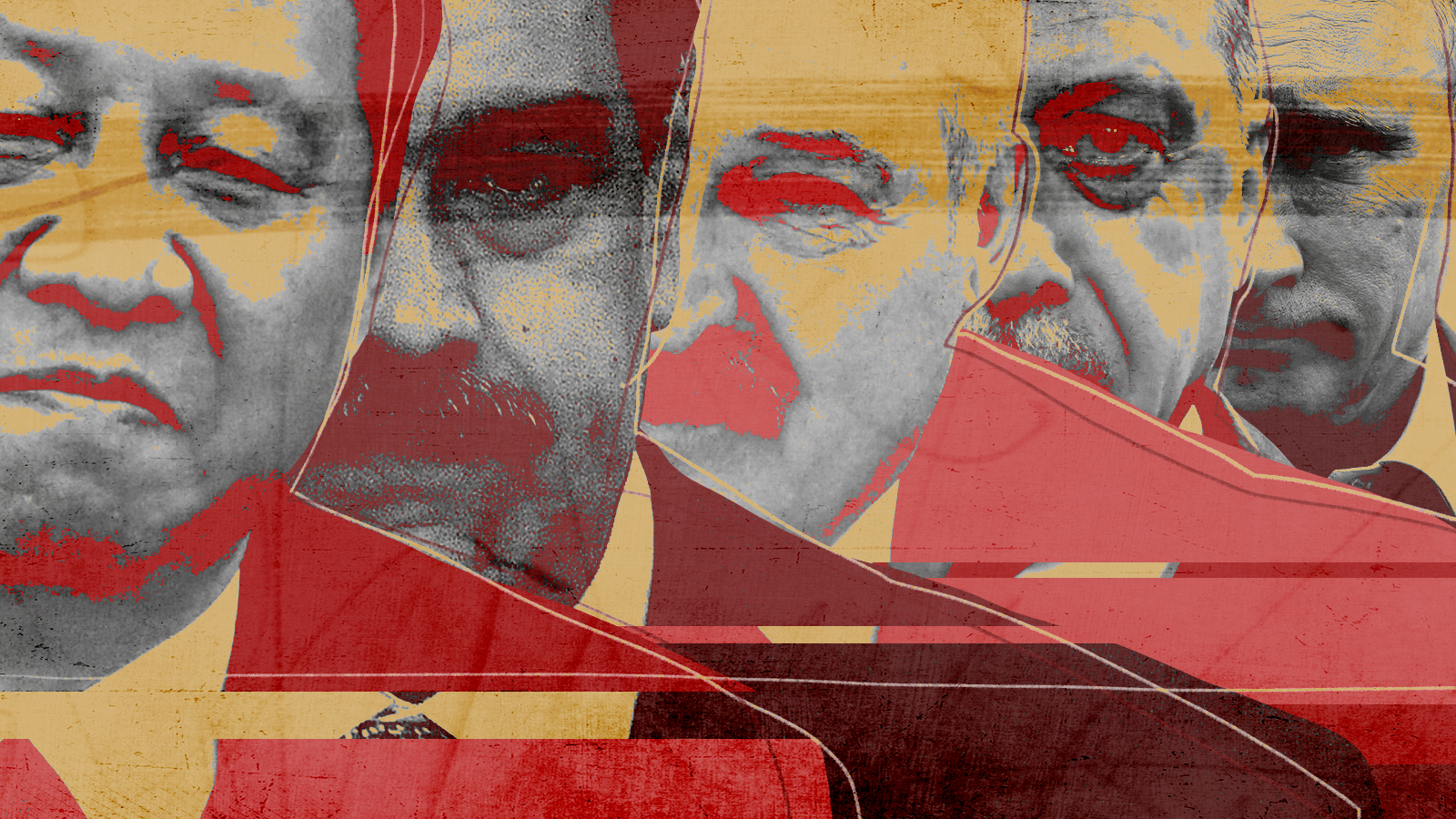The outdated thinking confusing our talk about autocracy


A free daily email with the biggest news stories of the day – and the best features from TheWeek.com
You are now subscribed
Your newsletter sign-up was successful
This week's best long read is undeniably Anne Applebaum's cover story from the December issue of The Atlantic, "The Bad Guys Are Winning." Applebaum is an accomplished historian of Soviet totalitarianism, and she lives in Poland, so her frequent writings on the subject of threats to democracy carry weight. Unlike many U.S.-based journalists on this beat, she knows the languages and political cultures of Central and Eastern Europe, where democratic backsliding has been concentrated in recent years.
Though putting it that way is somewhat misleading. While Applebaum begins her essay by focusing on Alexander Lukashenko, the Belarusian dictator who defied election results and massive protests to keep himself in power in 2020, she moves far beyond her own neighborhood to examine parallel and mutually reinforcing trends in China, Turkey, Venezuela, and many other countries around the world, including within the countries of the democratic West.
What the nations Applebaum considers have in common is their participation in what she evocatively dubs "Autocracy, Inc." As she puts it, autocracies in 2021 "are run not by one bad guy, but by sophisticated networks composed of kleptocratic financial structures, security services (military, police, paramilitary groups, surveillance), and professional propagandists" who use social media to spread the message about the weakness of democracy.
The Week
Escape your echo chamber. Get the facts behind the news, plus analysis from multiple perspectives.

Sign up for The Week's Free Newsletters
From our morning news briefing to a weekly Good News Newsletter, get the best of The Week delivered directly to your inbox.
From our morning news briefing to a weekly Good News Newsletter, get the best of The Week delivered directly to your inbox.
Anyone who cares about the fate of democracy in the world should read Applebaum's essay and ponder its troubling message. But that doesn't mean we should read it uncritically.
During the Cold War, many foreign policy analysts came to associate American interests with spreading American values and democratic institutions around the world. That made considerable sense when we were confronting a unified, coordinated front of ideological opposition to liberal democracy in the form of Soviet communism. But the idea was less persuasive when former President George W. Bush updated it for the era of the Global War on Terror, proclaiming in his second inaugural address that "America's vital interests and our deepest beliefs are now one." This was an oversimplification that spawned a lot of sloppy thinking and policymaking during his own presidency and that of his successor.
The idea is no more useful now. Applebaum recognizes that the new autocratic alliance has no unifying ideology, that "among modern autocrats are people who call themselves communists, nationalists, and theocrats," and that "no one country leads this group."
Yet talk of "Autocracy, Inc.," implies something different — that these countries constitute the same kind of unified front of opposition that democracies faced throughout much of the 20th century. Thinking that way might help to rally the West, but it could also blind us to the need to cultivate relationships and cut deals with some of those autocrats in order to advance our vital interests and undercut their own efforts to work together more closely than they currently do.
A free daily email with the biggest news stories of the day – and the best features from TheWeek.com
Our vital interests and our deepest beliefs are almost never one and the same. Remembering that will be crucial as the world's democracies work to fortify themselves in a dangerous world.
Damon Linker is a senior correspondent at TheWeek.com. He is also a former contributing editor at The New Republic and the author of The Theocons and The Religious Test.
-
 The environmental cost of GLP-1s
The environmental cost of GLP-1sThe explainer Producing the drugs is a dirty process
-
 Greenland’s capital becomes ground zero for the country’s diplomatic straits
Greenland’s capital becomes ground zero for the country’s diplomatic straitsIN THE SPOTLIGHT A flurry of new consular activity in Nuuk shows how important Greenland has become to Europeans’ anxiety about American imperialism
-
 ‘This is something that happens all too often’
‘This is something that happens all too often’Instant Opinion Opinion, comment and editorials of the day
-
 Big-time money squabbles: the conflict over California’s proposed billionaire tax
Big-time money squabbles: the conflict over California’s proposed billionaire taxTalking Points Californians worth more than $1.1 billion would pay a one-time 5% tax
-
 Did Alex Pretti’s killing open a GOP rift on guns?
Did Alex Pretti’s killing open a GOP rift on guns?Talking Points Second Amendment groups push back on the White House narrative
-
 Washington grapples with ICE’s growing footprint — and future
Washington grapples with ICE’s growing footprint — and futureTALKING POINTS The deadly provocations of federal officers in Minnesota have put ICE back in the national spotlight
-
 Trump’s Greenland ambitions push NATO to the edge
Trump’s Greenland ambitions push NATO to the edgeTalking Points The military alliance is facing its worst-ever crisis
-
 Why is Trump threatening defense firms?
Why is Trump threatening defense firms?Talking Points CEO pay and stock buybacks will be restricted
-
 The billionaires’ wealth tax: a catastrophe for California?
The billionaires’ wealth tax: a catastrophe for California?Talking Point Peter Thiel and Larry Page preparing to change state residency
-
 Trump considers giving Ukraine a security guarantee
Trump considers giving Ukraine a security guaranteeTalking Points Zelenskyy says it is a requirement for peace. Will Putin go along?
-
 Bari Weiss’ ‘60 Minutes’ scandal is about more than one report
Bari Weiss’ ‘60 Minutes’ scandal is about more than one reportIN THE SPOTLIGHT By blocking an approved segment on a controversial prison holding US deportees in El Salvador, the editor-in-chief of CBS News has become the main story
